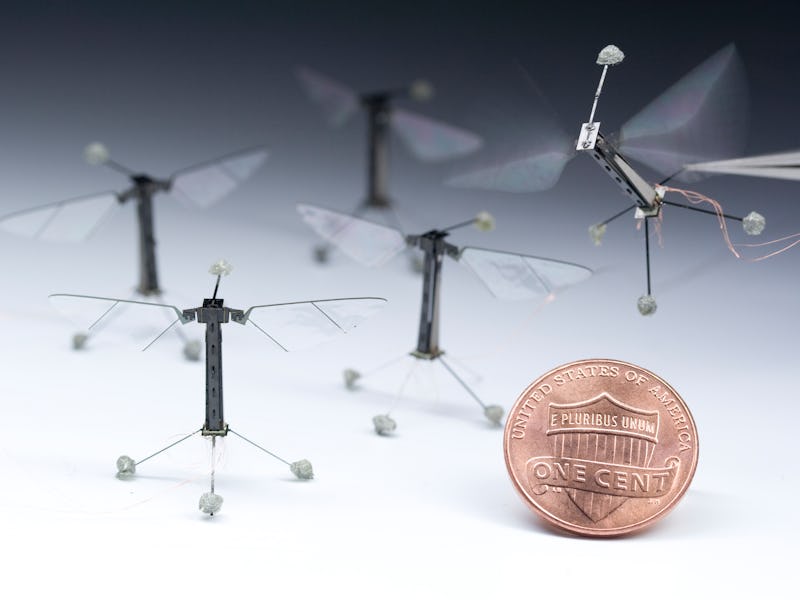Here Come RoboBees, the Robotic Bees That Can Fly and Now Swim
Scientists just upgraded these nifty, not-yet-useful robotic sylphs.

A group of Harvard scientists at the Wyss Institute for Biologically Inspired Engineering have been working on robotic bees for a few years now. They certainly aren’t the most advanced kind of robots — they’re still tethered to their power supply, and too small to really do a whole lot. But that didn’t stop those scientists from upgrading the little buggers with the ability to swim.
With such a light frame (only 80 milligrams!), these RoboBees can easily float on the surface like a six-legged bug. When they plunge into the water, however, they manage to swim around by the same mechanism that they use to fly: They flap their wings and keep moving!
Super cool, yes, but again these RoboBees can’t do much of anything worthwhile yet. The biggest futuristic application might be controlled pollination of plants and flowers — especially with bee populations having plummeted by nearly 30 percent in just the past eight years.
Another potential use for the RoboBees could be a new type of micro-drone, capable of flying long distances and accessing very small spaces to gather images, data, audio recordings — whatever.
Yes, that’s right — that future bee that won’t leave you alone on a nice sunny day in the park might actually be a mini flying robot sent to spy on you. Let’s hope scientists are aiming more for a pollination solution.
Beyond that, the most exciting prospect probably has little to do with the bees themselves, but is more focused around what can be learned from the techniques used to develop and modify these kinds of robotic systems, and the components one derives from the whole process.
“This work is a beautiful example of how bringing together scientists and engineers from multiple disciplines to carry out research inspired by nature and focused on translation can lead to major technical breakthroughs,” Wyss Institute Founding Director Don Ingber says in a news release.
The future tests the researchers conduct will shape not just what happens with the RoboBees, but any technology with even a small degree of relation or similarity. Best to keep paying attention to where these bees are headed.